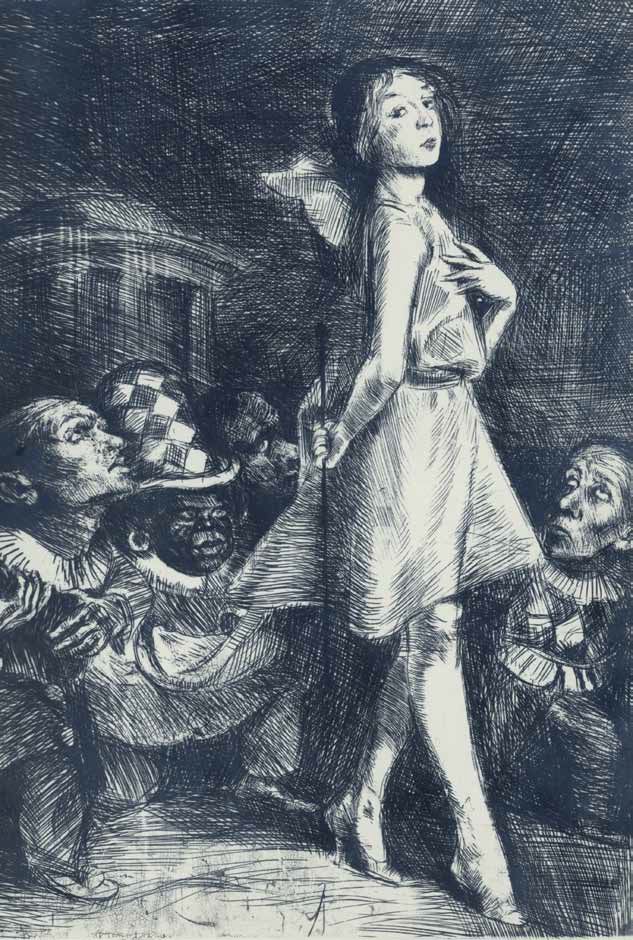Odcięcie. Siedem fragmentów
Separation. Seven Fragments
Author(s): Stanisław RosiekSubject(s): Anthropology, Psychology, Studies of Literature, Polish Literature, Interwar Period (1920 - 1939), Philology, Theory of Literature
Published by: Fundacja Terytoria Książki
Keywords: Bruno Schulz; schulz studies; literary theory; masochism;
Summary/Abstract: The text consists of seven fragments which in different ways refer to a central categoryof separation; in particular to masochism, one of its manifestations. First, however,separation reveals itself in an imaginary act of self-castration (in a dream), describedby Schulz in a letter. This act locates the writer beyond the sexes, symbolically excludeshim from biological support of the stream of life and directs to art. Schulz consideredthat irreversible passage from biological reproduction to artistic creation a grave sin.The masochistic separation became a topic of many graphic works and drawings inwhich the artist, as an icon of himself, paid homage to “la belle dame sans merci.” Hisliterary works are quite different – Schulz’s fiction is marked by shame. The presentessay demonstrates how the literary discourse of the Cinnamon Shops generates meaningfulgaps. Allusions and silence, all kinds of narrative suspension, were supplementedby Schulz with pictorial representations, according to a principle that what cannot bewritten about, may be drawn. Many of his graphic works are overt manifestoes of masochism.In the Booke of Idolatry these are emblematic representations, projections of theartist’s own phantasms, based on the visual idiom of the times, while in the compulsivedrawings from the 1930s the boundary between fantasy and reality blurs. Schulz’s artisticoperations are ostentatious. He never used any disguise, reporting on himself. He wasa masochist, but what did it mean? Another fragment is an attempt to find out what itmeant to be a masochist in Schulz’s times, and how he defined himself in that context,particularly in an explicit statement made in a letter to a certain psychiatrist: “Creatively,I express this perversion in its loftiest, philosophically interpreted form as a foundationdetermining the total Weltanschauung of an individual in all its ramifications.”The final fragment presents for the most part some hitherto unknown documentsof Schulz’s life, such as a police certificate of decency, men’s second-hand reportson his masochism, and memories of women with whom the writer held variouskinds of liaisons.
Journal: Schulz/Forum
- Issue Year: 7/2016
- Issue No: 7
- Page Range: 25-64
- Page Count: 40
- Language: Polish

